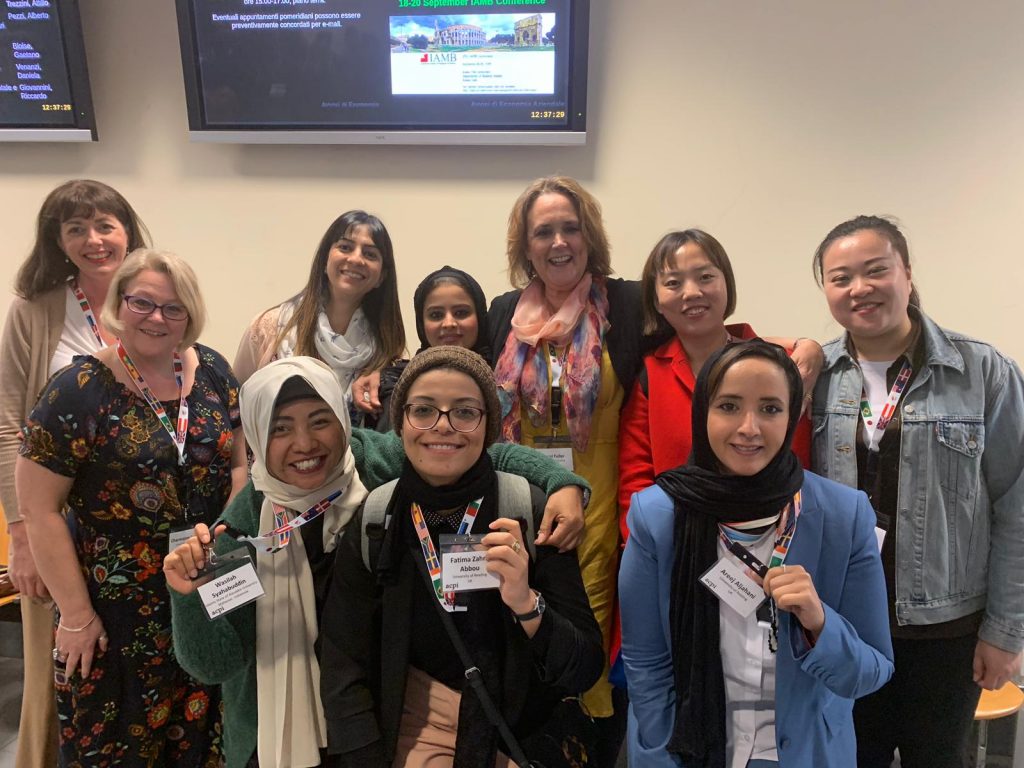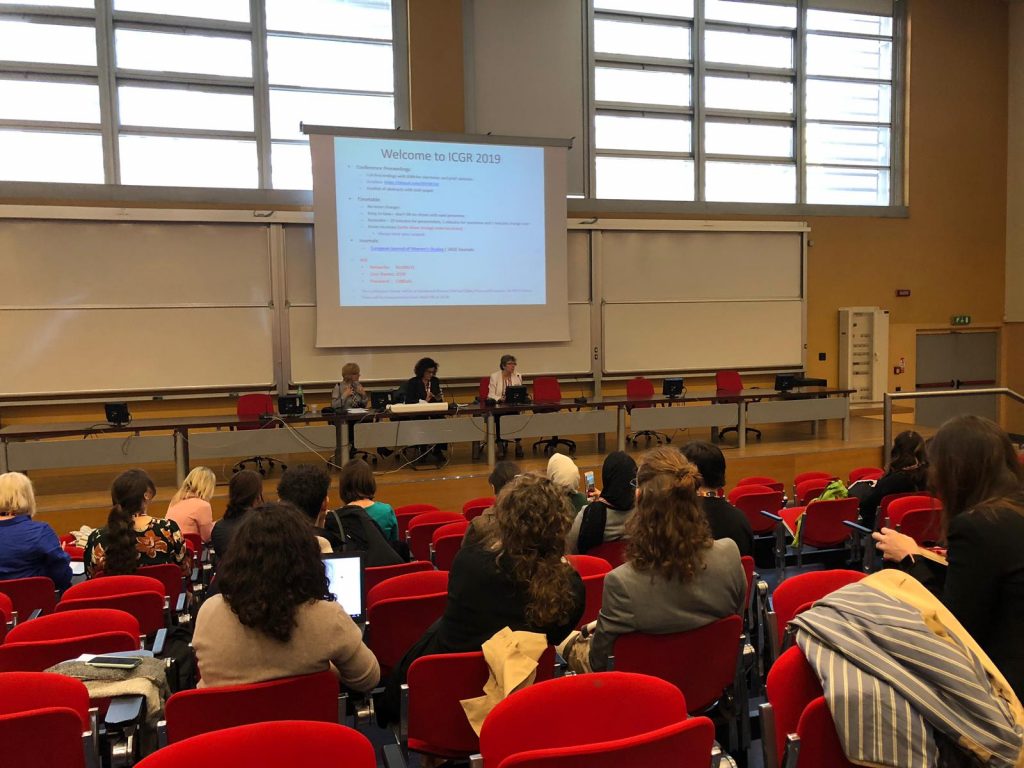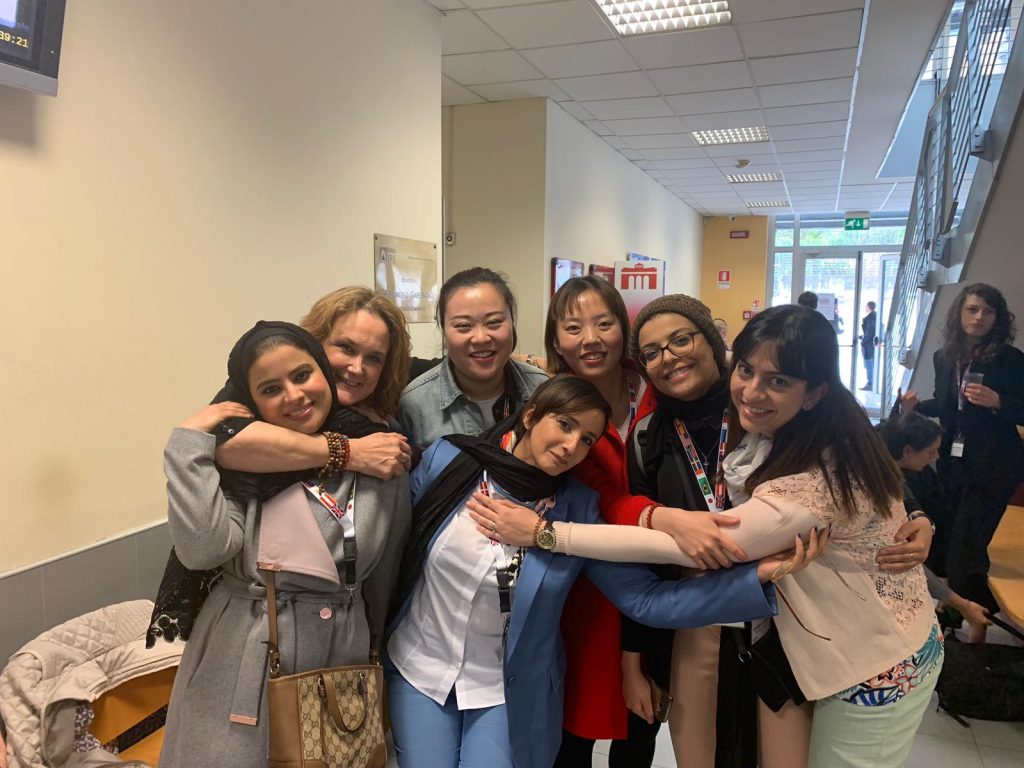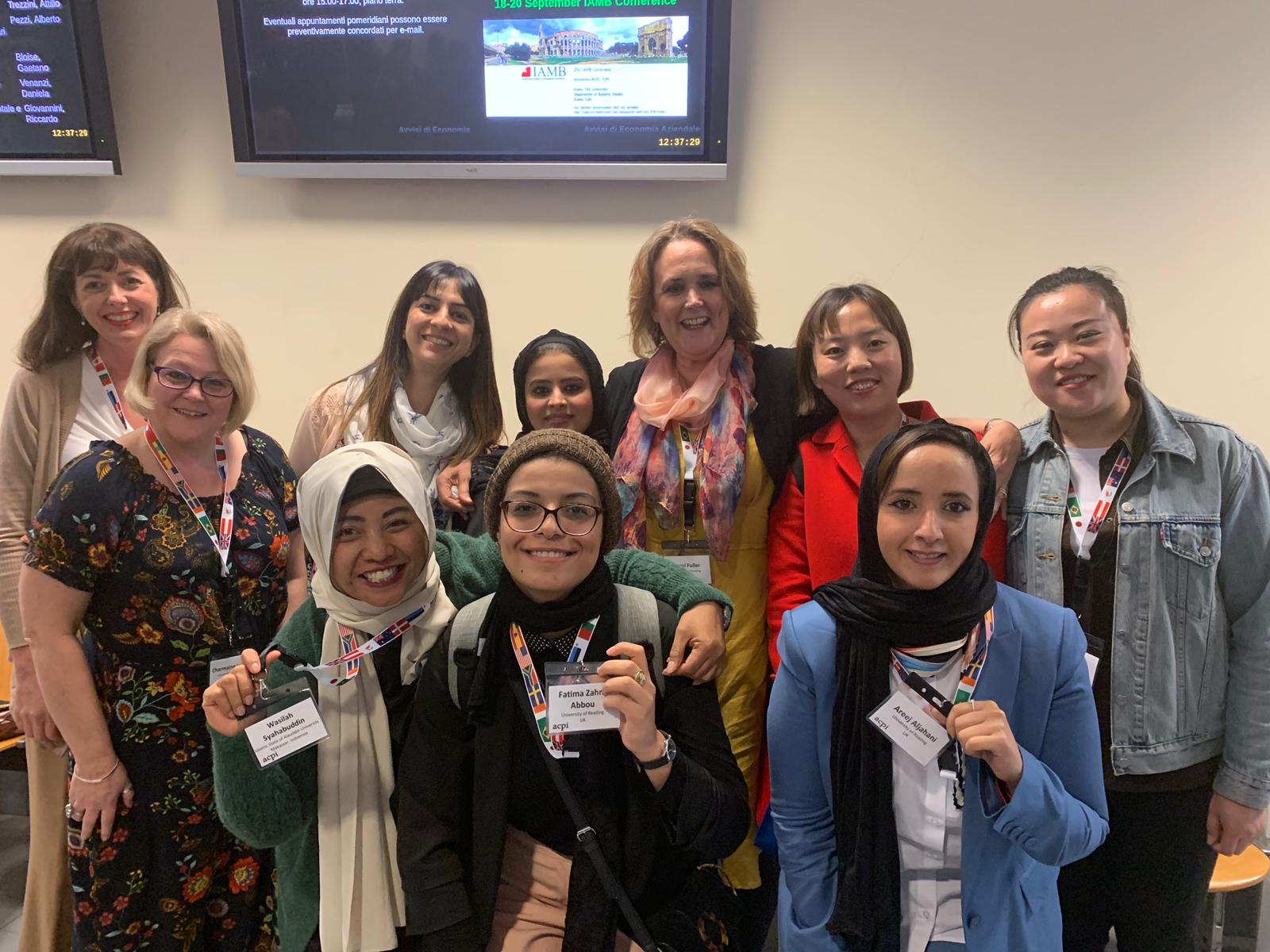On 11th and 12th of April 2019, a few doctoral research students (including myself) as well as a few research academics from the Institute of Education (IoE) attended the 2nd International Conference on Gender Research at Roma Tre University in Rome. It was one of the most enjoyable trips we have ever had because we got the chance to both learn from other academics in the research field of gender and to enjoy our time in one of the most beautiful cities. In this blog post, I would like to offer eleven practical tips on attending and presenting at research conferences for fellow doctoral research students as drawn from my personal reflections at this conference. I hope you will find my tips below useful.

BEFORE THE CONFERENCE
Tip 1: Check if you need visa to travel
As I and several of my fellow doctoral students who attended the conference are not British or European citizens, we were required to have the Schengen visa in order to travel to Italy (and, indeed, most of Europe). The visa application process can be a time-consuming process, so I would advise you to check if you need to apply for a visa to travel to the country where your conference will be held and if so, to start applying for it as early as possible.
Tip 2: Sort out your finances
Remember to withdraw some cash for your trip. If the conference is in a country that does not use Pound sterling, remember to exchange your money to local currency. You can always pay for things and services abroad with your credit and debit cards, but sometimes you will have to pay a small transaction fee if the local currency is not Pound sterling. Also remember to apply for funding from both the IoE and the University to help cover your conference registration fee, travel expenses, accommodation cost, etc. Leave plenty of time to apply for the funding and avoid leaving it to the last minute. Your supervisor can advise you on how to apply for such funding from both the IoE ad the University.
Tip 3: Prepare for your presentation
If you are presenting your research, you should ensure that you are fully prepared for your presentation by following these steps. First, when you start planning for your presentation, make sure that you check the guidelines provided by the conference organising committee concerning the time that you have so that you can plan your slides and the format. Second, ensure to make your slides interesting and attractive by including designs and pictures with fewer words and practice your speech in front of your friends or colleagues. Finally, if your presentation has complex diagrams that people may need afterward, you can print them for your audience; Moreover, make certain that you put your presentation file on a USB stick and email it also to yourself.

DURING THE CONFERENCE
Tip 4: Figure out venue location, key rooms and facilities
The day before the conference, you should plan for your journey (e.g. figure out the location of the conference venues, the means of transportation, transportation costs, etc.). Then, on the day of the conference, aim to arrive early so that you have time to figure out rooms of all the sessions you want to attend and facilities (e.g. bathrooms, café, etc.).
Tip 5: Plan which sessions you want to attend
Remember to either print or download to your device your conference’s programme. Read the abstracts to select the presentation sessions that you wish to attend and the location of the rooms so that you will not waste time later looking for the rooms.
Tip 6: Take notes of what you have learned from the presentations you attended
Taking notes during presentations can be helpful especially as we, doctoral students, constantly look out for innovative ways to do our research and answer our research questions. For this reason, remember to bring something to take notes with (be it pen and paper or a laptop). You can also ask presenters questions to help clarify anything you are not sure of, and they will be more willing to help.
Tip 7: Stay calm during your presentation
If you also present your research at the conference, stay calm and do not worry too much about making mistakes during your presentation because the academic environment is friendly and most academics in the room can understand the struggles of doctoral students presenting their research for the first time (or the first few times). One thing to remember is not to exceed the time allocated for your presentation, so aim to finish your presentation on time and remember to allow some time for questions and answers. Remember that you can always chat more about your research with any interested members of your audience after the presentation (e.g. during coffee breaks).
Tip 8: Network with other doctoral students and academics
One thing to remember is that academics and doctoral students in the conference are happy to network with you, so just approach them. I have to say that I grasped this only at the end because on the first day, I felt so overwhelmed due to the lack of confidence. However, in the last days, I made a lot of friendship with some doctoral students and academics from Ireland, Pakistan, Malaysia, and South Korea. One thing that I will remember is a conversation that we had about the situation of women in different parts of the world and the shock that we got to find that gender issues go beyond culture. It was a really eye-opening conversation and was only made possible because I had the courage to strike up a conversation with strangers.
Tip 9: Remember to take some time to enjoy yourself as well
I don’t think that my peers and I will forget the incredible time that we spent in Rome because not only Rome is so breath-taking, it was also wonderful to be able to go there with our supervisors. After the conference, we went with our supervisors to St. Peter’s Square, and took a lot of photos together. Then, we ate in an authentic Italian restaurant and the food was very tasty with ice cream. We really had fun, and we were so grateful for the opportunity to be able to have experience with our supervisors.

AFTER THE CONFERENCE
Tip 10: Remember to process comments and suggestions from your audience
One of the reasons why presenting at a conference is beneficial for both novice and experienced researchers is having the opportunity to receive feedback on your research from the audience. Try to keep a pen and paper with you all the time because someone may say something that is very interesting about (or relating to) your research, so always be prepared and keep your notes organised to read them later.
Tip 11: Revisit your notes of presentations you attended
I am currently preparing my Confirmation of Registration (CoR) document, and I found myself going back to my notes that I took from various presentations that I attended at the conference for ideas. This can be a great way to familiarise yourself with new theoretical frameworks used in the field in addition to new designs that can inspire you in your research.
Final words
Attending research conferences can help to broaden our views on current debates relating to our research field. For example, I learned a lot about the latest gender debates, such as gender issues in the field of entrepreneurship and gender issues in various places in the world. I also got the chance to meet doctoral students and academics from different countries, and it was really beneficial to learn and interact with them. For all these reasons, I really want to encourage all doctoral students (including those in their first year) to try to attend research conferences.
Although attending and presenting at research conferences, particularly big ones, can seem overwhelming at first, getting outside your comfort zone could help you to become more confident in that setting. Thanks to the encouragements of my supervisor (Dr. Karen Jones), I was able to conquer my fear and deliver the presentation. Although it was not perfect, it was a great start to my PhD journey.

